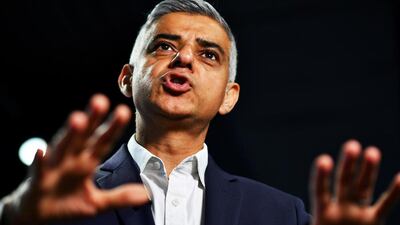Rent controls could be introduced in London’s private housing sector under new plans by London Mayor Sadiq Khan.
With London rents spiralling above inflation, Mr Khan wants to follow New York and Berlin in clamping down on landlords taking huge chunks of private renters’ cash, on average 42 per cent of household income.
London’s mayor currently lacks powers to impose stricter rules, but wants to introduce open-ended tenancies and the ability to bring rents down, through a commissioned panel with devolved powers that would include current renters.
According to the Greater London Authority, the average rent for a one-bedroom house is higher than a three-bed house outside London.
In hoping to overturn what is a highly important issue for Londoners, Mr Khan said on Friday he wants to create a universal register of London landlords as well as introducing caps on rent increases while the commission is being created.
“Unlike other mayors around the world, I have no powers over the private rented sector. That’s why this landmark report sets out a detailed blueprint of what the government must do to overhaul tenancy laws, and what powers City Hall needs from them to bring rents down,” said Mr Khan.
“Londoners are being priced out of the neighbourhoods they grew up in, couples are delaying having kids and many tenants dare not complain about disrepair in case their landlord retaliates with a rent hike,” said campaign group Generation Rent.
The Adam Smith Institute, a free-market think tank, accused London’s mayor of being an “economic illiterate”.
Marc von Grundherr, director of estate agents Benham and Reeves, criticised London’s mayor for showing “a real lack of understanding when it comes to the rental sector and wider property market”.
Mr Khan is eyeing up re-election as the capital’s mayor in 2020 and is set to make housing central to his manifesto.
His rival for London’s top job Shaun Bailey has proposed a taxpayer owned housebuilder acting like a private firm to build new homes. He has refused to put targets on how many homes he hopes to build, saying they act “as a bar” and rarely met.
Affordable housing and rent controls have been at the forefront of a growing movement in other European capitals.
Berlin approved a five-year rent freeze on Tuesday as soaring costs in the German capital have led to protests against increasing gentrification and demands for more government intervention.
The state also seized back 670 apartments on Karl Marx Allee, a famous boulevard stretching from the city centre through the former East Germany side dotted with Soviet-era buildings.

